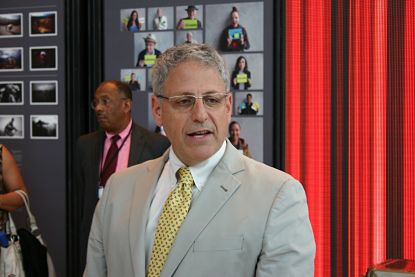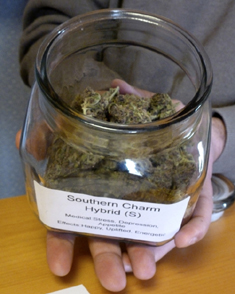Author: Mike Janssen
Mike has held the role of digital editor since 2014. Before becoming editor, he covered public radio and digital initiatives in public media for Current. Mike has also written for a variety of publications as a freelancer, was a Public Media Corps fellow, and has hosted talk and music shows on community radio stations in the Washington, D.C., area. In his spare time, he enjoys spending time with his family, playing banjo, cooking, and making coffee and cocktails.
With Jazz Night, WBGO and NPR Music will take fans into venues to listen, watch and chat
NPR and WBGO-FM in Newark, N.J., are teaming up to produce Jazz Night in America, a series of radio broadcasts paired with live, high-quality ...By Mike JanssenSeptember 23, 2013New WYZR brings jazz back to Pittsburgh area
Former staffers of Pittsburgh’s defunct WDUQ-FM have returned to the airwaves with WYZR, a jazz station that signed on Aug. 31 from ...By Mike JanssenSeptember 20, 2013Out of Africa, Thompkins returns to New Orleans home
After serving a stint as NPR's East Africa correspondent, Gwen Thompkins was ready to head in a different direction. WWNO gave her ...By Mike JanssenSeptember 18, 2013Atlanta jazz station hopes smoother sound catches on
Atlanta’s WCLK-FM, a jazz station licensed to Clark University, aims to double its audience share with a new approach to programming music ...By Mike JanssenSeptember 18, 2013With credits gone, NPR’s off-mike staffers get silent treatment
NPR ended the practice Aug. 30 of crediting the off-mike staff behind the scenes of its newsmagazines, citing evidence that the lists ...By Mike JanssenSeptember 12, 2013Ombud’s critique of NPR series prompts rebuke from top brass
“My finding is that the series was deeply flawed and should not have been aired as it was,” the ombudsman wrote. Top ...By Mike JanssenAugust 28, 2013NPR’s Shapiro will report from London
NPR’s Ari Shapiro will end his stint covering the White House and head abroad in January to report from London, the network ...By Mike JanssenAugust 27, 2013KUSC broadcasting classical show from Santa Monica beach
KUSC host Rich Capparela has taken his Friday show to the beach. Starting Aug. 23, the Los Angeles classical station personality Rich ...By Mike JanssenAugust 26, 2013Knell’s departure prolongs churn in NPR presidency
The unexpected departure of President Gary Knell puts NPR in the all-too-familiar situation of looking once more for a leader.By Mike JanssenAugust 20, 2013Uncertainty about marijuana’s status casts doubt on dispensary underwriting
Public radio stations are divided over whether to accept underwriting donations from what could be an up-and-coming source of income: marijuana dispensaries.By Mike JanssenAugust 16, 2013Kentucky public radio stations evaluate advantages of working together
Leaders of Kentucky’s public radio stations are considering how they might collaborate and consolidate operations, with a goal of cutting costs and ...By Mike JanssenAugust 12, 2013Alabama network will drop Public Radio International shows
Alabama Public Radio will eliminate Public Radio International shows from its schedule, dropping This American Life and The World, reports Tuscaloosanews.com. Director Elizabeth Brock said the ...By Mike JanssenAugust 3, 2013Pacifica’s D.C. station in dire financial straits, says interim executive director
Pacifica station WPFW in Washington, D.C., is in “a pretty critical financial situation,” according to Summer Reese, interim executive director of the ...By Mike JanssenJuly 30, 2013Madeleine Brand will host new midday show on KCRW
Former KPCC host Madeleine Brand, who left the Los Angeles station in September 2012, will host a new midday show on competitor ...By Mike JanssenJuly 26, 2013After public broadcasting, David Giovannoni dives into audio’s long-lost past
Retiring from public radio finally afforded audience analyst David Giovannoni the time to turn his hobby, collecting antique phonographs and early sound ...By Mike JanssenJuly 26, 2013







